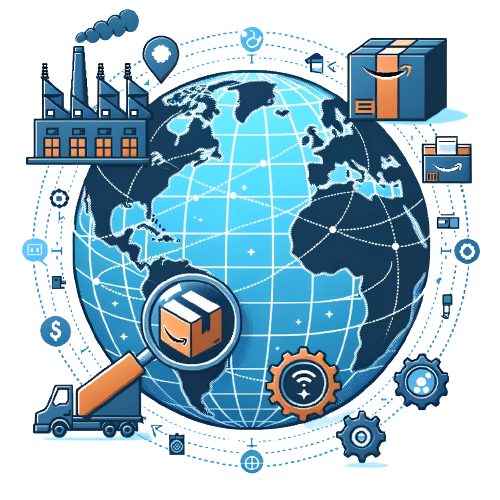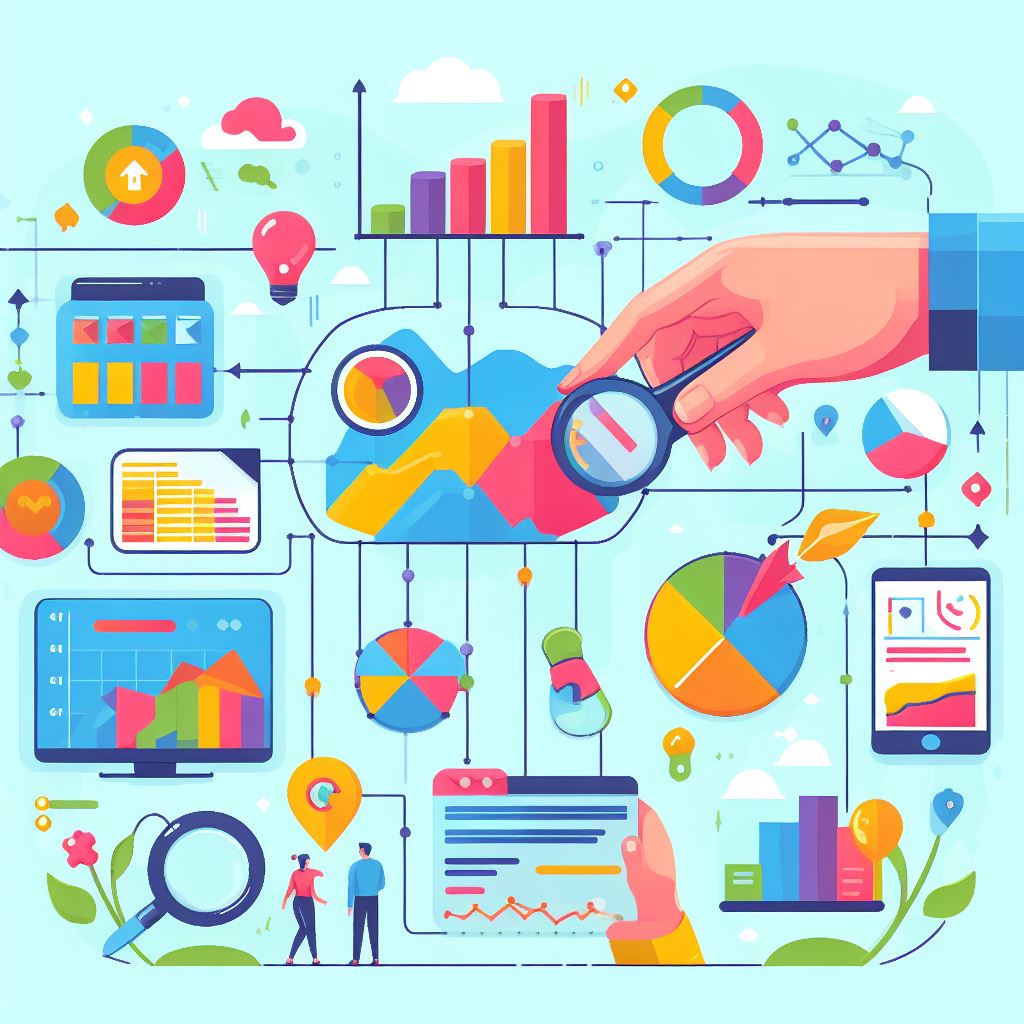So, you’ve heard the term “supply chain management” thrown around but aren’t quite sure what it means? You’re in good company. Supply chain management, or SCM, involves overseeing the flow of goods and services. It includes a multitude of stages—from the initial procurement of raw materials to the delivery of the finished product.

Let’s dissect these elements.
Key Components of Supply Chain Management
| Component | Description | Real-life Example |
|---|---|---|
| Procurement | The process of obtaining raw materials and services. | Buying textiles for garment making. |
| Manufacturing | Converting raw materials into finished products. | Sewing garments from textiles. |
| Logistics | The transportation and storage of goods. | Shipping garments to a retail store. |
| Sales & Distribution | Selling the finished product to the end consumer. | Customers purchasing garments. |
Why is Supply Chain Management Important?
Imagine you’re on a sourcing tour in India, visiting fairs and meeting potential suppliers. Each of these interactions forms a link in your supply chain. Without effective management, one weak link can disrupt the entire chain, leading to delays and increased costs. Here’s where we come in. At Indiasourcingsolutions.com, we specialize in crafting bespoke product sourcing tours that navigate the complexities of the Indian market.
Benefits of Effective Supply Chain Management
- Cost Efficiency
- Faster Time-to-Market
- Improved Supplier Relationships
- Better Risk Management
- Higher Customer Satisfaction
The Procurement Process: More Than Just Buying
Procurement is often misconceived as merely “buying stuff.” In reality, it’s a nuanced process that involves everything from selecting suppliers to negotiating contracts. Procurement specialists play a crucial role here, ensuring you get the best quality materials at the most competitive prices.
What Do Procurement Specialists Do?
Picture this: you’re in a bustling Indian fair, surrounded by a myriad of products that catch your eye. But how do you know you’re making the right choice? That’s where procurement specialists come in. They assess supplier capabilities, perform quality checks, and even manage contracts. In essence, they are your knights in shining armor, ensuring you make purchases that are not just compelling but also rational and beneficial in the long run.
Roles of Procurement Specialists
| Role | Description | Example |
|---|---|---|
| Supplier Assessment | Evaluating the reliability and quality of potential suppliers. | Checking a supplier’s business history. |
| Quality Checks | Inspecting the quality of goods and services before procurement. | Testing fabric quality in textile sourcing. |
| Contract Management | Overseeing contracts to ensure terms are met by both parties. | Ensuring timely delivery by a supplier. |

Management & Purchasing: The Balancing Act
Managing a supply chain isn’t just about sourcing and procuring; it’s also about smart management and purchasing decisions. It’s a fine balance, akin to walking a tightrope. On one side, you have the need for high-quality materials, and on the other, the ever-present constraints of time and budget.
Tips for Smart Management and Purchasing
- Always have a Plan B: Don’t put all your eggs in one basket.
- Leverage Bulk Buying: The more you buy, the more you save.
- Build Strong Supplier Relationships: It’s not just business; it’s a partnership.
Decoding the Buzzwords: Define Supply Chain and Its Counterparts
Let’s break it down. When people say “supply & chain,” they’re referring to the holistic system of organizations, activities, and resources that bring a product from its inception to its end consumer. And when you hear the term “manufacturing chain,” think of it as a subset of the supply chain focused solely on the production aspect.
Common Supply Chain Terminologies
| Term | Definition |
|---|---|
| Supply Chain Supply Chain | An emphasis on the interconnectedness of each element in the supply chain. |
| Supply and Chain | A breakdown of the two main aspects: sourcing (supply) and logistics (chain). |
| Supply of Chain | Refers to the inventory and stock within the supply chain. |
| Supply Chain and | An incomplete phrase often used to segue into related topics like procurement or logistics. |
| Supply & Chain | A shorthand for discussing both elements collectively. |
Beyond the Basics: Advanced Concepts in Supply Chain Management
By now, you might be thinking, “Okay, I’ve got the basics down. What’s next?” Well, the world of supply chain management is ever-evolving, introducing new methodologies and technologies that can significantly impact your sourcing experience.
Advanced Concepts in Supply Chain Management
- Just-in-Time (JIT) Inventory: A strategy to increase efficiency by receiving goods only as they’re needed.
- Blockchain: A secure way to record transactions, enhancing transparency.
- Artificial Intelligence: Utilized for predictive analytics, helping to forecast market trends.
Final Thoughts:
As you venture into the fascinating fairs of India, armed with newfound knowledge on supply chain management, remember that you’re not alone. At Indiasourcingsolutions.com, we are committed to making your sourcing journey as seamless as possible. Whether you’re a novice or a seasoned professional, our bespoke sourcing tours are designed to meet your unique needs.
Why Choose Indiasourcingsolutions.com?
| Reason | Description |
|---|---|
| Expertise | Years of experience in navigating the Indian market. |
| Customization | Bespoke tours tailored to your specific sourcing needs. |
| Comprehensive Services | From procurement to logistics, we’ve got it all covered. |
Frequently Asked Questions
1. What is Supply Chain Management?
Supply Chain Management (SCM) is the systematic approach to managing the entire flow of goods and services in an organization. It covers everything from procurement and manufacturing to logistics and customer service.
2. Why is Supply Chain Management Important?
Effective SCM can lead to cost savings, faster time-to-market, and improved customer satisfaction. For businesses involved in product sourcing, like those using Indiasourcingsolutions.com, it’s essential for navigating the complexities of the Indian market.
3. What Do Procurement Specialists Do?
Procurement specialists are responsible for sourcing goods and services, evaluating suppliers, and managing contracts. They ensure that you get the best quality and price, making them an integral part of the supply chain.
4. What is Just-in-Time (JIT) Inventory?
Just-in-Time (JIT) is an inventory management strategy that aims to improve efficiency by receiving goods only as they’re needed in the production process. It helps to reduce inventory costs and wastage.
5. How Can Technology Impact Supply Chain Management?
Technologies like Blockchain and Artificial Intelligence are revolutionizing SCM. Blockchain provides secure and transparent transaction records, while AI can be used for predictive analytics, helping businesses forecast market trends.






